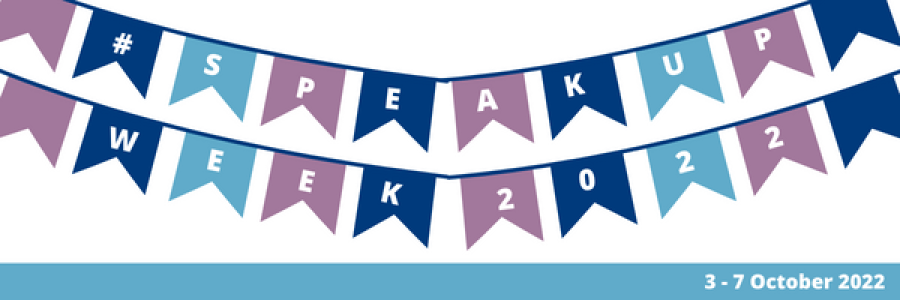
Speak Up Week 2022!
3-7 October
Speak Up Week is an opportunity to engage staff about the benefits of speaking up and the difference it can make within the NHS in Scotland. Importantly, it is also a fantastic way to raise awareness about the local arrangements for speaking up in your health board and to promote the role of Confidential Contacts.
The overall theme was the benefits of speaking up. You can see what we got up to each day under the drop down menus below.
You can also read our review of Speak Up Week 2022 and learnings for 2023.
We also want to hear from you! If you have any photos and videos of your own events and and want to share them with us, please email them to [email protected].
Friday 7 October - Speak Up Week wrap up
Friday 7 October - Speak Up Week wrap up
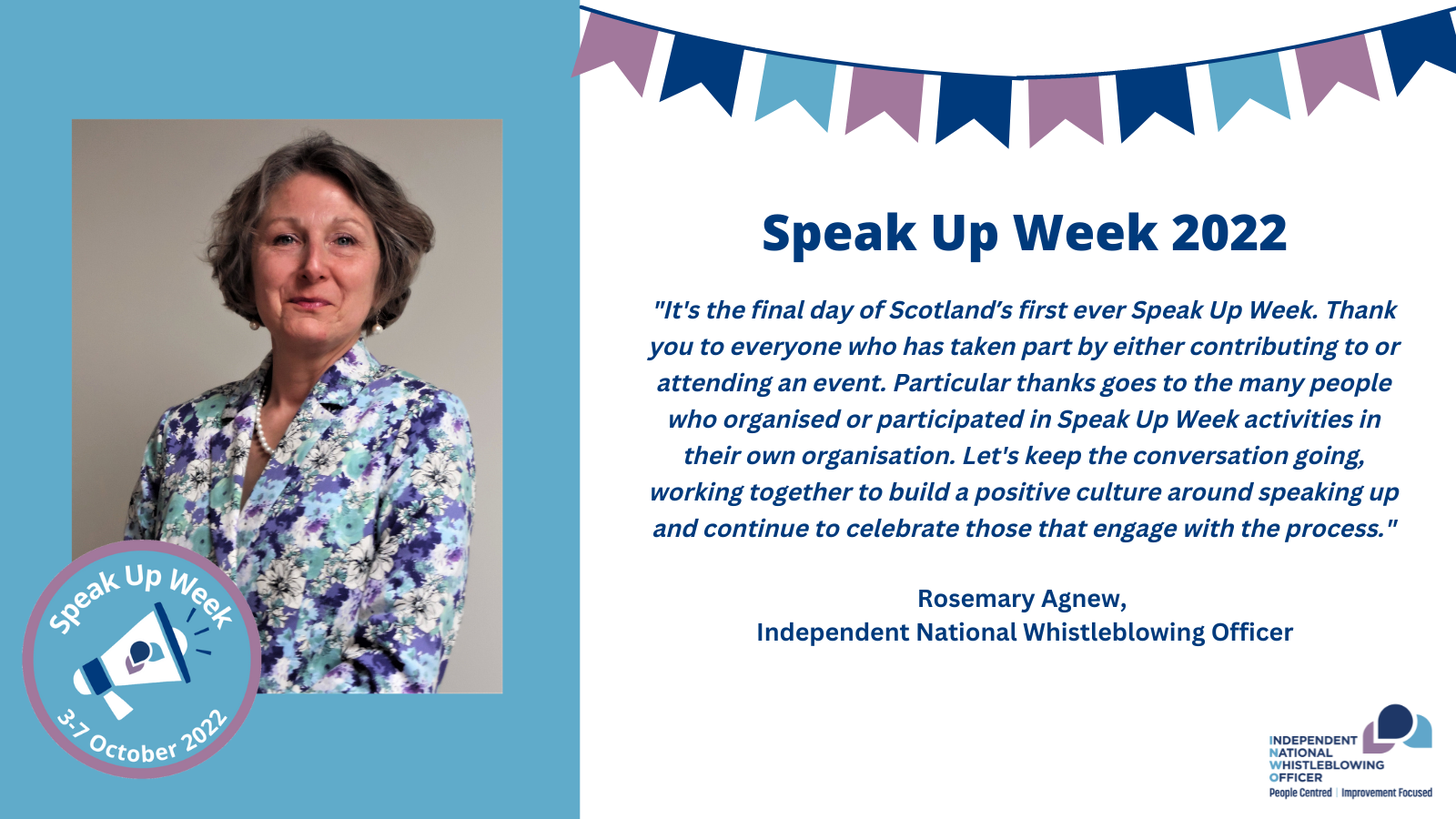
The week in review
NHS Scotland’s first Speak Up Week has been a great opportunity for boards to highlight the benefits of speaking up. We hope that you got as much out of it as we did! We’ve been delighted by the engagement we have seen from boards during the week on social media and if you missed anything you can catch up on Twitter by viewing #SpeakUpWeek.
The week started with an inspiring conversation between Dr Jayne Chidgey-Clark, the National Guardian and Rosemary Agnew, the Independent National Whistleblowing Officer. It was great to have the leaders of these organisations taking time to share their experiences and thoughts about speaking up and the benefits a strong speak up culture can bring. The video is really worth a watch and at the end both leaders shared their top tips for organisations, individuals and managers:
- For NHS management: move your mind-set to a growth mind-set; remember that people are giving you a gift of information when they speak up; and be as courageous yourself as you would like other people to be in speaking up when things aren’t right.
- For individuals, people who need advice should speak to their FTSU guardian (England) or a Confidential Contact/Whistleblowing Ambassador (Scotland) so they can be supported through it. Also people in Scotland can pick up the phone and speak to the INWO team who will help with realistic and meaningful advice (for more details, see below).
- For managers receiving concerns, be curious about what the information is telling you (and not defensive). Be open, and put the person speaking to you as much at their ease as you can, without forming any judgements until the issue is fully explored.
On Tuesday our Spotlight on Confidential Contacts blog talked about the value of the Scottish Speak Up Network in supporting isolated colleagues, and the development and standardisation of the role.
The Spotlight on Whistleblowing Champions blog on Wednesday highlighted the Champions’ position as the guardians of the whistleblowing process in Scotland’s NHS. We also looked at how the Champions have come together to understand and develop their roles, and share learning from their experiences so far.
Our panel session with Niki Maclean (SPSO), Simon Watson (Healthcare Improvement Scotland), Stewart Hughes (SSE) and Sean Parker (Civil Aviation Authority) showed how building trust and transparency is vital for staff to have confidence in raising concerns. That involves treating speaking up as a onetime event and handling it right the first time, or people are unlikely to come back. From a management point of view, it is about seeing the purpose of your speak up process as a way for employees to tell you where the problems are, and not just a functional way to manage people who have concerns. Providing feedback is also very important so that people know that processes are working and that speaking up is worthwhile. Building trust also takes in the aftercare that people get when they speak up, so that they are assured that they won’t experience detriment. Our speakers noted that trust and transparency does not happen overnight. It takes years to build and moments to destroy. Watch the discussion here.
What happens next?
Speak Up Week has been a really positive campaign for raising awareness amongst staff about the benefits of speaking up and who to speak to. But the ideas and activity generated are just part of an ongoing process. We know that some boards are doing well at encouraging people to speak up, listening to them and acting on the concerns, and their reports reflect this. But others have work to do to get staff to feel comfortable raising concerns. This is where senior leaders and people responsible for whistleblowing governance have an opportunity to take the lead and demonstrate that speaking up is welcomed and valued. Talking about speaking up should continue throughout the year and should be a regular focus of communications with staff.
Thank you to everyone who has taken part in Speak Up Week. We were extremely encouraged by the enthusiastic response of NHS organisations, and we appreciate all the work that has been put into it. We would love to hear about what you did, please send your feedback to [email protected]. We look forward to working with everyone again next year on Speak Up Week 2023!
Other resources
- Speak Up Week wordsearch - grab a cup of tea and have a go at our themed wordsearch!
Thursday 6 October - Building trust and transparency
Thursday 6 October - Building trust and transparency
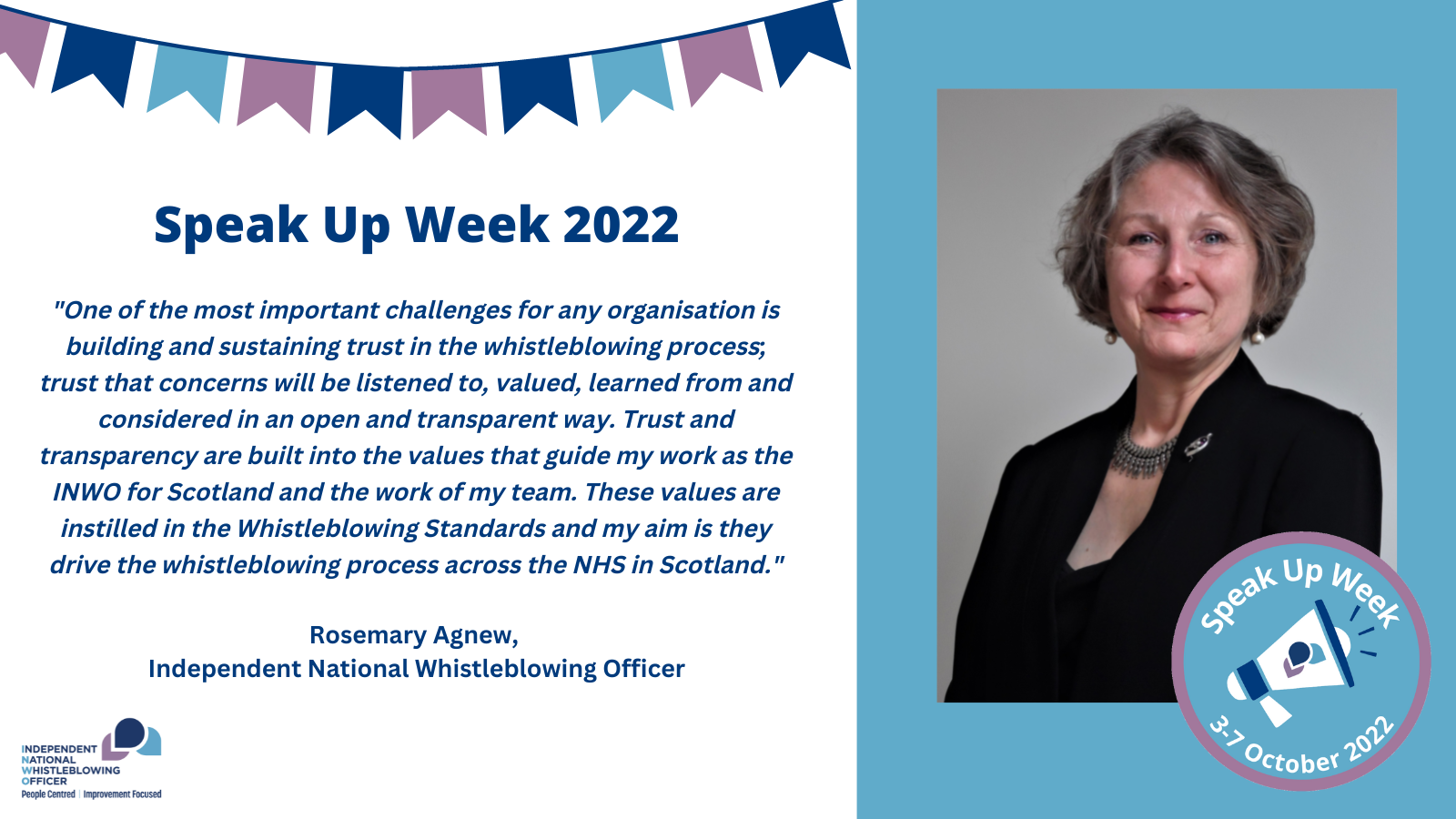
Building trust and transparency webinar (3pm - 4pm)
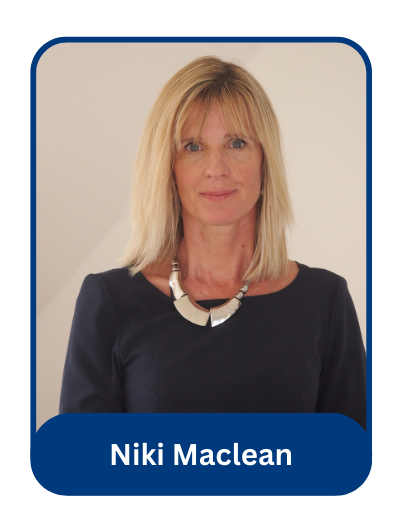
Today, Niki Maclean, SPSO Director, will be hosting an online panel discussion, on the theme of building trust and transparency. We are very pleased to welcome speakers from a diverse range of backgrounds:
- Simon Watson - Medical Director at Healthcare Improvement Scotland (HIS)
- Stewart Hughes - Head of Group Security at SSE (formerly Scottish and Southern Energy)
- Sean Parker - Safety Reporting Programme Lead at the Civil Aviation Authority (CAA)
The webinar brings together considerable experience and expertise across a number of different fields:
- The CAA is the regulator for the aviation industry, where having an effective speak up culture is critical to public safety.
- SSE have done considerable work over the last decade to improve trust and transparency in their own speak up processes. They regularly achieve very high confidence ratings in speaking up, in their staff surveys.
- HIS help health and social care organisations to redesign and continuously improve services, and they also accept whistleblowing concerns.
This session will be delivered via Webex. Due to an excellent response, places on this session are limited. Please email [email protected] to register your interest. We will be recording this webinar for anyone who is unable to attend. Check back later or sign up to our newsletter for the latest updates!
Other resources
- Trust & Transparency: the SSE approach - an insightful article written for the National Guardian's Office by Stewart Hughes, Head of Group Security, SSE plc.
Wednesday 5 October - Spotlight on Whistleblowing Champions
Wednesday 5 October- Spotlight on Whistleblowing Champions
![]()
Whistleblowing Champions are individuals within health boards in Scotland, who monitor and support the delivery of the whistleblowing policy in NHS Boards. Unlike other roles, such as the Confidential Contacts, Whistleblowing Champions are not part of the process for receiving whistleblowing concerns. They cannot accept whistleblowing concerns from staff or offer advice and support on individual whistleblowing cases. Neither can they undertake an investigation into concerns raised by staff, students or volunteers. So what do they do?
Oversight and reporting
Whistleblowing Champions are responsible for overseeing the whistleblowing activity within their organisation as a Non-Executive Director sitting on the Board. They provide oversight for the Board of Directors on the organisation’s implementation of the National Whistleblowing Standards (the Standards) and their handling of concerns under these Standards. They can also raise issues with the Board if they observe patterns in the reporting of concerns or issues with the way the Standards are being applied. For this reason they are particularly interested in the number and type of concerns being raised and, crucially, whether people feel confident to speak up with their concerns. They can work with the executive lead for whistleblowing to ensure that the whistleblowing process is working effectively. Some Champions also meet with confidential contacts, staff and union representatives to help them understand what is happening on the frontline.
Guardians of the whistleblowing process
The Whistleblowing Champions in Scotland have formed a network so they can meet regularly to discuss their work, share learning and ideas, and develop a consistent approach to the role. Liz Humphreys (Chair of the Network and Whistleblowing Champion for the Scottish Ambulance Service and Public Health Scotland) and Callum Blackburn (leading the Network’s Support Team and Whistleblowing Champion for the Golden Jubilee National Hospital) recently spoke to us about what they’ve been up to and reflected on where things are after more than a year of working with the Standards.
Liz and Callum told us that the network has been an extremely helpful resource for Whistleblowing Champions, particularly over the last year while it has been in a development phase. The network’s main focus in this period has been on shaping their understanding of the Whistleblowing Champion position and the responsibilities involved. The network has also provided a key point of support for Whistleblowing Champions as they help their Boards to embed the new processes. Liz and Callum told us that they see themselves as the guardians of the whistleblowing process within their organisations.
Now that the foundations have been laid, the network aims to support continuous improvement. Liz and Callum emphasised the significance of the Champion role being one part of a larger picture within an organisation, along with the Confidential Contacts, the executive lead for whistleblowing, other staff support networks like the unions and the practitioners who handle whistleblowing concerns.
Learning from each other
One key thing to emerge from the Whistleblowing Champions network is that not all health boards are the same. Some may be more directly patient-facing than others. Liz and Callum explained that this has presented challenges to developing a consistent shared approach, whilst also allowing individual Champions the flexibility to work out what is right for the boards that they represent.
As a network, the Champions have also grappled with some of the more complex issues of how to ensure the Standards are being applied to areas beyond the immediate health board. For example, within primary care providers and contracted services. We heard that the network has been a vital resource for Champions as a discussion forum and a place to share ideas and be creative in areas where there isn’t a formal or standardised approach in national guidance.
Crucially, we heard from Liz and Callum that the last year has been about learning from each other and reflecting on individual experiences. One example cited was that when the Standards were first introduced in April 2021, the Whistleblowing Champions were unsure where whistleblowing concerns were likely to come from or what they would be about. Interestingly, some Champions have found that the concerns raised have not always come from the areas that they might have expected. This kind of information continues to help them adapt their approach.
There is still plenty of work for the group to do, particularly thinking about how they interpret the whistleblowing data that has been collected over the first year. The network is asking important questions about the information they are seeing and what learning they can take from it. For example do low numbers of whistleblowing concerns show that there are no issues to be addressed, or could it be the opposite, that staff don’t yet feel comfortable speaking up?
Thank you to Liz and Callum for sharing their thoughts and feedback with us for this blog post. We were really encouraged to hear about the value of the network and to see the engagement and enthusiasm shown for the work being done.
Tuesday 4 October - Spotlight on Confidential Contacts
Tuesday 4 October - Spotlight on Confidential Contacts
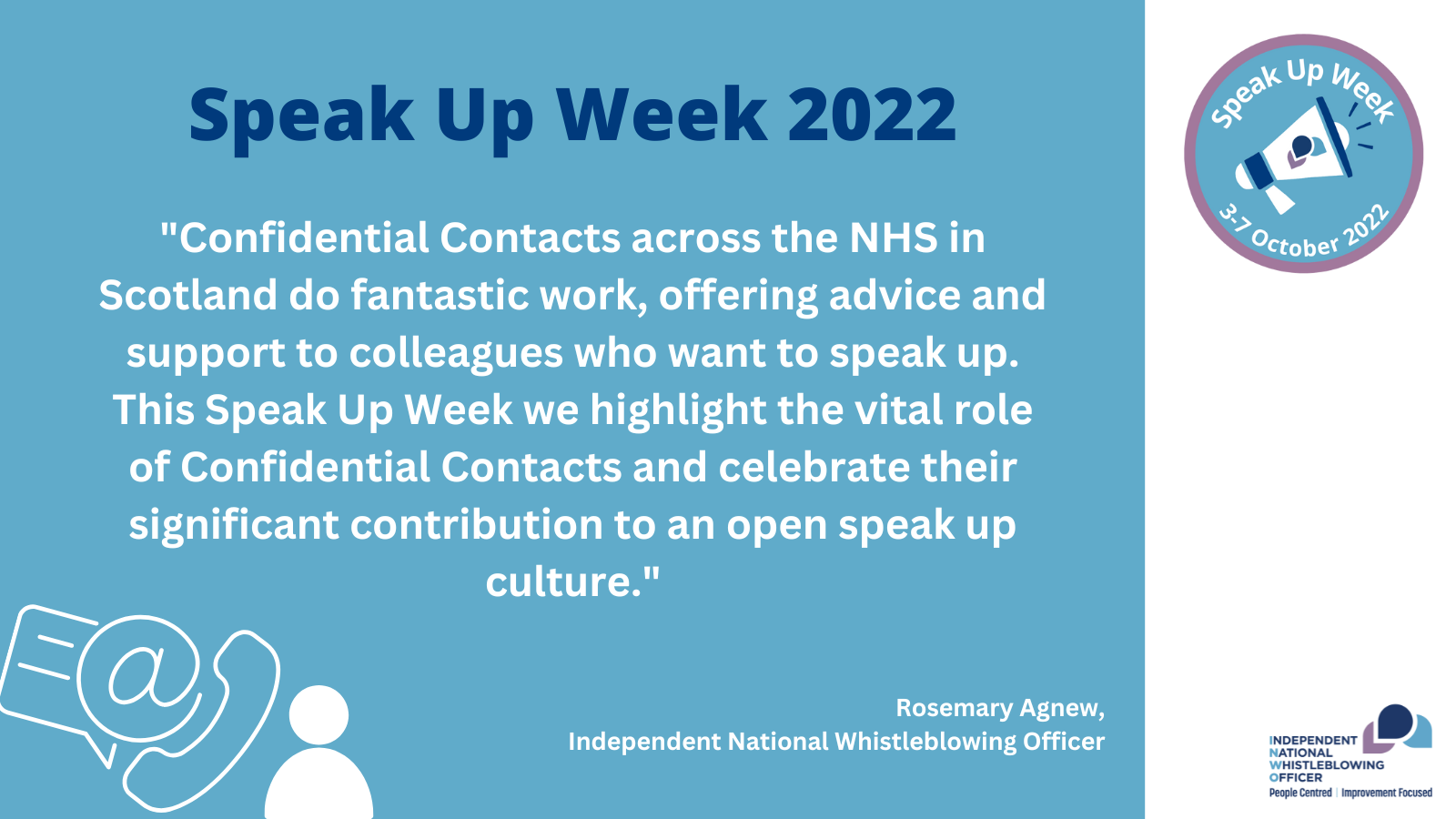
When people speak up, they need to be able to do so in a safe and supportive environment. Sometimes it’s as easy as raising a concern in a team meeting and matters getting resolved to everyone’s satisfaction. But if the concern involves a manager, or people don’t feel comfortable speaking to their manager, the Confidential Contact (sometimes called Whistleblowing or Speak Up Ambassador) can help.
Who are confidential contacts?
Confidential Contacts have a valuable role in supporting an open speak up culture in the NHS. They enable people to speak up who otherwise might not have their voice heard. They are a first point of contact for anyone delivering an NHS service. They can give advice and information on the whistleblowing process and help people to raise their concerns with the right manager.
Confidential Contacts have an ongoing role in supporting the whistleblower, so it is important that they remain independent of the board’s investigation and management of the concern. Confidential Contacts also have a role in promoting speaking up and helping to build trust in the process. With most Confidential Contacts doing this role in addition to their NHS job - and there being only a few Confidential Contacts in each board - this is a challenge.
Positive momentum
On 1 April 2021, the INWO launched the National Whistleblowing Standards (the Standards), which now means that all organisations providing an NHS service need to have procedures in place that enable their staff, students, volunteers and others delivering health services, to access the Standards and raise concerns. Caroline McDowall and Hannah Monaghan, co-chairs of the Scottish Speak Up Network, both held whistleblowing roles prior to the Standards coming into force and feel that they have made a real difference.
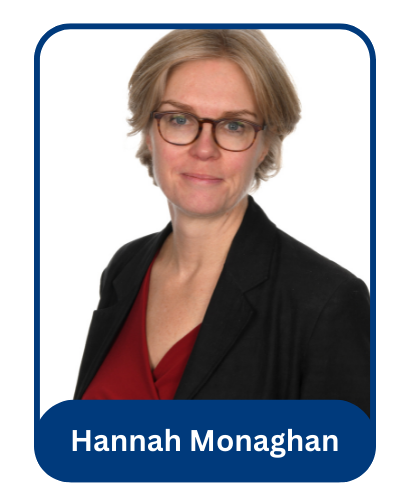
"This is an exciting time to be a Confidential Contact. Prior to the roll out of the new whistleblowing standards our roles were relatively isolated. We feel that there is a growing positive momentum across Scottish NHS boards to support the Speak Up! Listen Up! Follow Up! approach.”
Caroline told us that one of the most satisfying things about being a Confidential Contact is where a concern has not needed to go through a formal process after all, because the whistleblower has been supported to the extent that they feel comfortable to raise a business as usual concern. For Hannah, it’s seeing a clear and defined national direction for whistleblowing and drive to support an open and honest culture.
Scottish Speak Up Network
As the process in the National Whistleblowing Standards is still fairly new, Confidential Contacts are continuing to learn and develop in their roles. This is where the Scottish Speak Up Network has been invaluable. Hannah and Caroline told us,
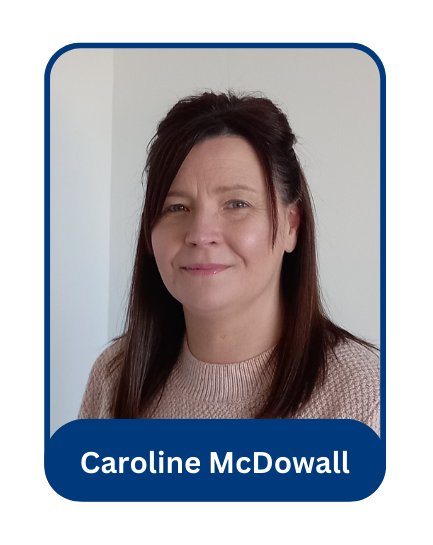
“The Scottish Speak Up Network has given all Confidential Contacts the opportunity to get peer support and learn from each other. Because this is a confidential space, we can discuss openly how it feels to be a Confidential Contact and how we can deliver the role as best as possible.
We have also benefitted from support and development. Part of our network sessions are focussed on external speakers upskilling us all and increasing our awareness of work undertaken by other groups.”
The network is especially helpful for Confidential Contacts who do not have peer support within their own boards and who feel isolated. Confidential Contacts hear things that are challenging and the network is an ideal opportunity to help them process these experiences. It is also a safe space, with no blame, where people can ask questions and benefit from the experience of colleagues.
Benchmarking the role
The Scottish Speak Up Network is currently working towards standardising the role of the Confidential Contact. They have recognised that Confidential Contacts have different remits in each board, and even go beyond what the Standards intended. The network recently carried out its own benchmarking exercise of Confidential Contact roles, which they will be discussing with members in their next meeting. Confidential Contacts will be able to use the outcomes of this work to have conversations with their boards about their roles and how these should be developed. The INWO really welcomes this work and look forward to working with Confidential Contacts to shape and develop their role over the coming months.
Some of the early findings of the benchmarking exercise are that not all confidential contacts are aware of their role in supporting the whistleblower throughout the process. Some aren’t involved in promotion of speaking up or raising awareness either. There is also no formal training to be a Confidential Contact. Training opportunities have been different with some trained in soft skills and others having completed the National Freedom to Speak Up Guardian’s training in England, prior to the launch of the Standards.
The INWO and Scottish Speak Up Network are in regular contact and INWO has attended the network’s meetings to talk about topics like bullying and whistleblowing, and whistleblowing culture. The INWO is fully supportive of the network and will be providing any assistance it can to help.
If you are a Confidential Contact and you would like to join the Scottish Speak Up Network, please contact Hannah and Caroline at [email protected].
Do you know who the confidential contacts are at your organisation? Look for details on your staff intranet page. If you’re still unsure, you can contact the INWO advice line on 0800 008 6112 or email [email protected].
Other resources
- Role of the Confidential Contact - webinar from our INWO team on the role of the Confidential Contact, including how organisations can offer support to Confidential Contacts and their relationship with primary care.
- Your local confidential contact poster (Word, 236KB) - who are the Confidential Contacts in your organisation? Download and print this editable poster to spread the word amongst staff!
Monday 3 October - The benefits of speaking up
Monday 3 October - The benefits of speaking up
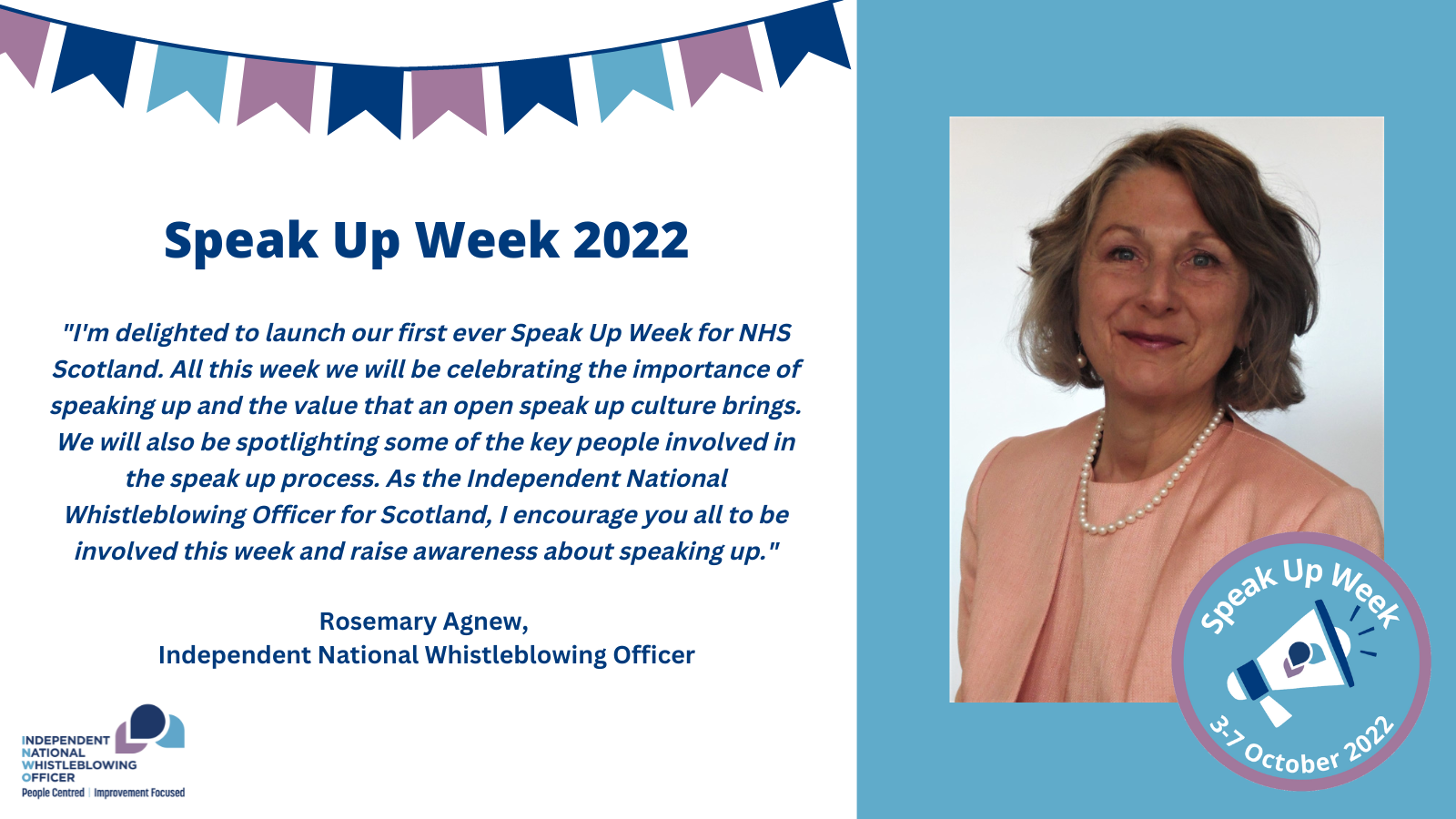
The benefits of speaking up
Dr Jayne Chidgey-Clark, the National Guardian, and Rosemary Agnew, the Independent National Whistleblowing Officer discuss the benefits of speaking up, making speaking up work for everyone, and their thoughts on changing culture in the NHS.
Other resources
- What is speaking up? - watch our short animation about whistleblowing in the NHS in Scotland.
- Changing the World One Whistleblower at a Time - a webinar from Protect, a UK whistleblowing charity, celebrating the positive achievements of whistleblowers in honour of World Whistleblowing Day 2022.
- Team meeting exercise:
Resources for your organisation
- Schedule of INWO activity for Speak Up Week (PDF, 167KB)
- Speak Up Week Teams corporate background (PNG, 176KB)
- Speak Up Week logo (JPG, 67KB)
- Speak Up Week Twitter banner (PNG, 71KB)
- Take part in Speak Up Week editable poster (Word, 131KB)
- Your local confidential contact editable poster (Word, 236KB)
- Webinar recording: Speak Up Week information session - 26 July 2022
- Tips on how to organise a successful Speak Up Week (PDF, 320 KB)
- Team meeting exercise:
- Tea break wordsearch (PDF, 127KB)
How the INWO can help
Our website is full of useful resources and information for whistleblowers and NHS organisations in Scotland:
- National Whistleblowing Standards
- National Whistleblowing Standards training
- FAQs:
- Webinars:
- Case studies
Contact us
The INWO is here to support speaking up in Scotland’s NHS and to independently review whistleblowing concerns that have been investigated by health boards (if the whistleblower remains unhappy). We offer a daily advice line for anyone wanting to raise a concern, including union reps or confidential contacts helping their colleagues. You can contact us on 0800 008 6112, use our contact form or email us.
For organisations looking for advice on the National Whistleblowing Standards (the Standards), the SPSO’s Improvement, Standards and Engagement (ISE) team can help (click here to email the team). They can also give advice about best practice from years of supporting boards with public service complaints.